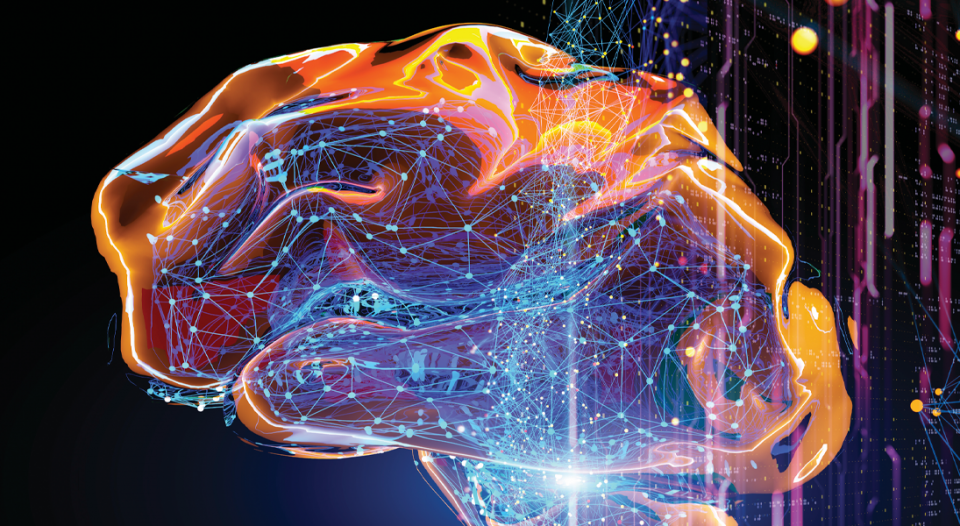Artificial intelligence (AI) has become part of our daily lives, guiding home robots, traffic lights, calculators, Fitbits and cellphones. But what do we know about the influence of this technology, and how might it impact our spirituality?
To consider these questions, let’s take a closer look at AI and another technology—intelligence amplification (IA), which augments human intelligence.
Moral challenges of AI
In our devices with artificial intelligence, preprogrammed algorithms perform computation, data processing and automated-reasoning tasks at microprocessor speed. AI is changing our communications, but is it changing our lives? If so, how much?
Computer wizards working in AI laboratories regularly meet around the coffeepot to discuss the moral issues we soon will confront. First on the list is jobs. A study by the McKinsey Global Institute predicts a “robocalypse”—the loss of 800 million jobs to robots by 2030. Will AI lead to unemployment or greater employment?
Second, advances in AI may expand the chasm between rich and poor. In medicine, for example, the new diagnostic and therapeutic technologies are marvelous if not miraculous. But only large hospitals and medical complexes will be able to afford them, leaving local neighborhood clinics to slip toward obsolescence. Should we be concerned?
Next is the question of how many pedestrians could be hit by self-driving cars. Will our culture value the life of the person over the rights of the AI-controlled machine?
Is AI moral or immoral? Neither. Intelligence is necessary but not sufficient for moral behavior. We must add consciousness, followed by deliberation, decision and action.
And last is the prospect that our military will turn decision-making over to armed drones sent on missions to kill. Once programmed to destroy, they may not be called back. Should we turn our life-and-death responsibilities over to an algorithm?
To think through the ethical conundrums of AI technology, I’ve become a founding member of “AI and Faith,” where computer enthusiasts around the world conscientiously sort out the moral challenges.
AI isn’t actually intelligent. No one yet has produced artificial general intelligence (AGI)—a program capable of performing any task the human brain can perform. When you plug in a powerful computer, don’t mistake it for an intelligent person.
Is AI moral or immoral? Neither. Intelligence is necessary but not sufficient for moral behavior. We must add consciousness, followed by deliberation, decision and action. No AI machine can be considered moral or immoral in this customary sense. We must treat any machine with an AI label to be the moral responsibility of the designer, the manufacturer or the operator.
Intelligence amplification
Intelligence amplification (IA) is enhancement of one’s mental powers through a computer chip surgically implanted in the brain. Such a chip might provide instant access to all the information in Wikipedia. Without turning a page in a book or clicking on Google, you could report obscure facts, write complex physics formulas or recite the Gospel of Mark by heart. The bioethical term for such IA is “enhancement.” Are you ready to get enhanced?
Since you wouldn’t want that computer chip to go out of date, you’d also install a transmitter so the chip could communicate 24/7 with a satellite that updated it. Whenever you wanted a stock price, you could silently ask the chip for the latest Dow Jones report. There are many implications to be considered. What if a bad actor gained control of that satellite and fed you inaccurate information?
IA wouldn’t make you more intelligent. At best, it would supply you with more information. For deliberation, decision and action, you’d still be on your own.
Spiritual sanctification
What does this have to do with spirituality? Could AI or IA increase our moral capacity? Might we rely on such technologies to enhance our feelings of compassion, our desire to do good, our virtuous behavior? We have always asked the Spirit to grant us God’s grace so that we can selflessly love our neighbor. Might AI or IA replace the Spirit? As we set out on the path toward sanctification, could AI and IA lead us to greater holiness?
In recent years I have asked experts in Roman Catholic spirituality and Lutheran ethics about expectations for the long-range future. The responses have been uniform: no technological enhancement by either AI or IA could possibly lead toward increased holiness.
The pursuit of virtue or holiness is a choice—that is, deliberation, decision and action. Each of us must decide to live a godly life. No computer program can make that choice for us.
The Spirit can work from within us, empowering us to choose compassion, love, care and a virtuous lifestyle. For empowerment by the Spirit, we don’t need to wait for the technological future.





